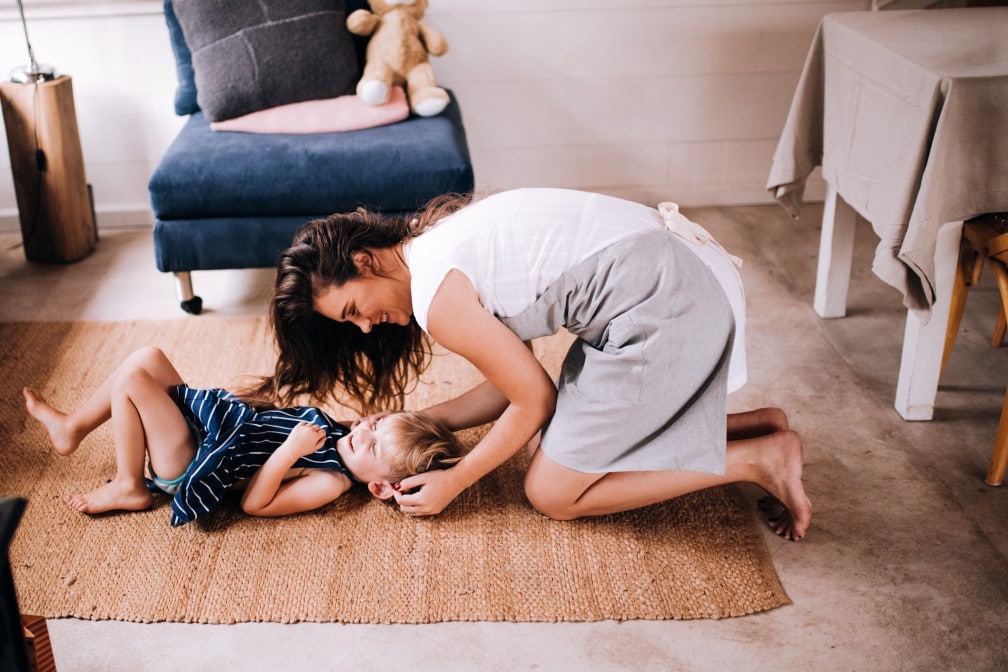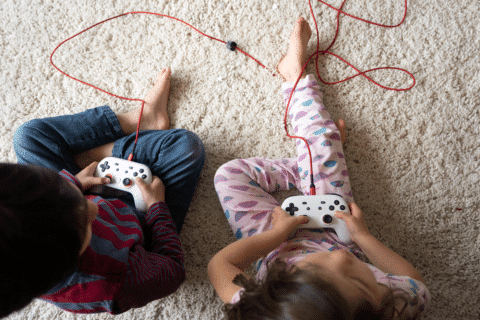When Gina Gallagher’s first child was diagnosed with autism, it reshaped her life. A few years later, when she learned that her second child also had learning disabilities, Gallagher and her sister, Patricia Konjoian, whose own children were experiencing difficulties, decided to write a book about their experiences. “Shut Up About Your Perfect Kid: A Survival Guide for Ordinary Parents of Special Children” provides advice, reflections and a hefty dose of humor for parents of special needs children. The sisters have given talks across the country and launched a Facebook group for parents with more than 850,000 members around the world.
What follows is Gina’s conversation with us on her experience as the parent of a special needs child.
When parenting plans change
Gina Gallagher: Before you have or adopt children, you have dreams and expectations of what your kids will be like. When you learn that your child has special needs you have to adjust those plans. Experts have likened the process of learning that your child has a disability to mourning because of the loss of a dream you had. There’s grief. For me it was devastating. Not everybody goes through that, but many parents do. Compounding the period of mourning is the loneliness of being surrounded by people who don’t understand you.
Emily Perl Kingsley – she was a writer for Sesame Street – wrote a wonderful essay called “Welcome to Holland”. She likens having a child to a fabulous trip to Italy: for your whole life, you’ve heard about Italy and how beautiful it is. You’re finally ready to go to Italy and you get on the plane. But when the plane lands the pilot says, “Welcome to Holland.” You say, “Holland? No, there’s been some kind of mistake; I’m supposed to be in Italy.” And he says, “No, you’re in Holland, and this is where you must stay.” You struggle to get over the loss of Italy, but as you look around, you see that Holland has Rembrandts, windmills, and tulips, and it is a wonderful place. That really sums up what many special needs parents feel.
Experiencing the joy of unexpected milestones
Special needs parenting is not all sorrow. We have tremendous joy and our children teach us to appreciate milestones that other people take for granted.
For example, when my daughter tied her shoes for the first time, I nearly burst with pride. She was 10 years old at the time and everyone else was doing it at age five, but for her, with the motor skills that were required, shoe tying was a really difficult task. This was a tremendous milestone that parents of kids without special needs would not understand.
Good times and the F-bomb
Some of the milestones are very funny. A parent at one of our first talks got up and said, “I want to brag about my child with autism: today he told his first lie.” We were all laughing, but anyone who knows a child with autism knows that’s a big achievement; it shows that the child is taking perspective.
Another parent said, with pride, “My child used the F-word in the right context.”
Many kids are very literal thinkers when they have language-based learning disabilities. One mother told her son to hurry up and jump in the shower. When she went upstairs he was literally jumping up and down in there.
I think the thing that got me through the difficult times was community – spending time with people who understood – and humor.
Confronting social issues proactively
When my daughter who has autism was little, she was happy to be with other kids, but was always on the periphery, never really engaging with them. If we were at a playground and other kids were in the sandbox making castles, she was hopping alongside them, thinking she was playing with them.
I’ve always loved sports, so as she got older, one of my strategies for helping her make friends was to invite neighborhood kids to my house to play sports with me. They got to know my daughter in the process.
I got my daughter a puppy because her psychologist told me that it would bring kids to her, which it did.
I relied heavily on family. My daughter didn’t have many friends, so I invited her cousins and my friends’ “typical” kids to her birthday parties so she was never alone. Being alone is a big issue. My sisters’ kids who are typical were very good for her. My child didn’t have an older sibling she could follow, so she followed her cousins. To this day they’re very close. They don’t baby her because she has special needs. They treat her like they treat each other.
Figuring out when to push
One of the hardest things to know is where the disability is and when your children are being lazy. Teenagers are teenagers, and a teen with a disability is probably not above using it as an excuse to be lazy. I had to learn to recognize where the line lay, and it was often fuzzy.
I think the way you manage that is by really trying to understand what your child’s specific challenges are. Yes, he or she has been diagnosed with autism. But what does that mean for your child?
For my eldest daughter, it means if I bring her to a party and the next day she doesn’t do her chores, I could assume she’s being lazy, or I could say to myself, “Oh, she was at that party last night and it took every bit of her to be in that crowded, sensory-overloaded environment. To be social, to make small talk – that can be so draining for her.”
One of the things I’ve had to learn is to adjust my perspective on how children learn and understand the effect of the situations they are in. I’m a social person so I thrive at a party. But someone with social issues may not.
Rediscovering self-care
When we speak, one of the most important things we tell parents is that you have to practice self-care. When you’re on a plane and they teach you about the oxygen masks, the first thing they say is to put your own mask on first before assisting anyone else. Self-care for the parents of special needs children is the same.
Some parents really don’t leave their kids. For me, self-care is exercise. I make time to do things for myself apart from my kids.
We asked one woman what she does and she said, “I pour myself a glass of wine and read through all my child’s test results.” Our reply was, “That’s not self-care.” Another woman came up to us afterward and said, “You know, she’s having an affair with someone here.” I said, “You know what? That’s self-care.”
Learning to let go
The biggest thing my husband and I worried about was adulthood, but I’m finding that adulthood is so much easier for my children than life was when they were younger.
Parents of special needs kids often think our children can’t go on without us. We’re obsessed with looking at the future and worrying about it. We know they’re going to have to function without us one day, but we worry that they can’t.
We underestimate them a lot.
—
Visit Gina and Patricia at https://www.shutupabout.com/
Michael Davis is a freelance writer and editor. He has covered everything from fashion and music to parenting, work, and finance. In a previous life, he was a chef and restaurateur.






